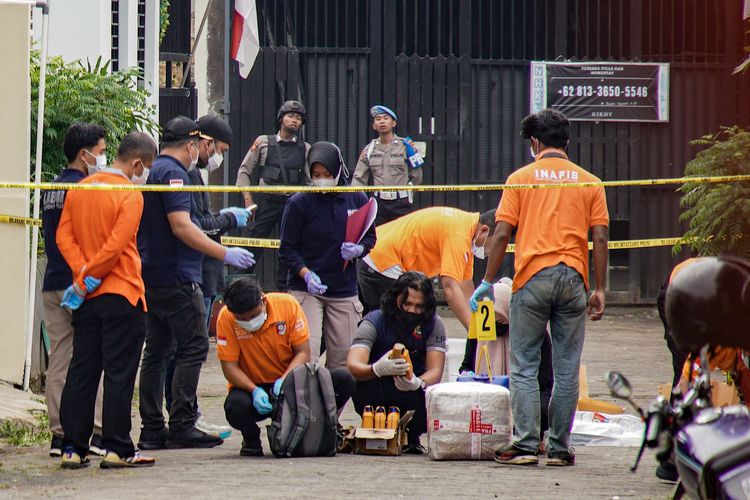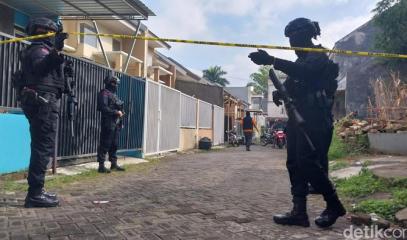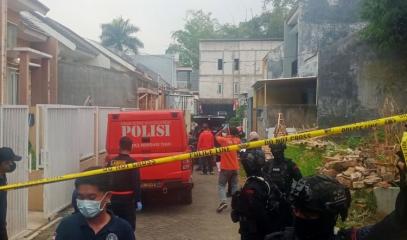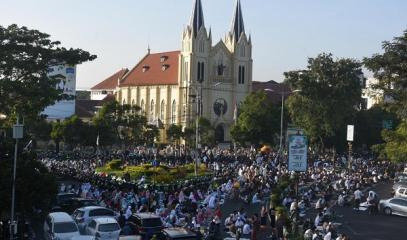Attacks on two churches foiled a month before the Pope's visit
Two places of worship in Malang were the targets. Police dismiss claims that the planned attack was linked to Francis’s upcoming apostolic trip to Asia-Pacific. Three people were arrested, including one man known as "Hok" suspected of affiliation with the extremist group Daulah Islamiyah. Explosive materials used to make the "Mother of Satan" bomb were confiscated.
Jakarta (AsiaNews) – A little more than a month before Pope Francis’s visit to Indonesia, two Catholic churches were in the crosshair of Islamic extremists.
Densus-88 Polri,[*] the counter-terrorism unit of Indonesia’s national police, foiled suicide attacks against the two places of worship in Malang, East Java.
This sends a warning signal ahead of the pontiff's apostolic journey to Southeast Asia and Oceania from 2 to 13 September, raising questions about security and sectarian violence in Indonesia.
Asked by local media about the affair, Brigadier General Trunoyudo Wisnu Andiko said that "two churches were targeted,” but he did not add further details about the operation and its timing.
Indonesian police dismissed rumours that the terrorist operation was linked to the papal visit to the country, which has, for long time, sought to show the world a moderate version of Islam.
Speaking about the foiled attack at the heart of Catholicism in East Java, General Andiko explained that the three suspects arrested are politically linked to the extremist group called Daulah Islamiyah.
At night, the Densus-88 Polri unit raided a rented house in Jeding, a village in Junrejo district, Batu regency, about 25 km from Malang.
The city of more than 820,000 people is home to many Christian religious groups and congregations, as well as the famous Widya Sasana School of Philosophy and Theology, where hundreds of seminarians study.
One of the three suspected terrorists arrested is known as "Hok", a high school student believed to be one of the would-be suicide attacker.
Yesterday afternoon, he reportedly admitted under questioning that he wanted to blow himself up in one of the churches in Malang, after he was indoctrinated "for six or seven months" by Daulah Islamiyah.
“The social media of the terror group seriously affected his mindset," said Densus 88 police spokesman Senior Superintendent Aswin Siregar speaking to AsiaNews.
The young man used some of the money he received from his family to buy bomb material.
The police detained Hok’s parents on board a train bound for the capital, Jakarta. However, since they found no dangerous material in their possession, the two were released.
The counter-terror squad did confiscate materials – triacetone triperoxide (TATP) – to make a bomb better known as the "Mother of Satan” for the big blasts it generates.
Police also found other items, including iron balls, which terrorists usually add to amplify the damage of the blast and cause more victims.
Indonesia, the world's most populous Muslim nation, has in the past been the scene of several attacks on churches or acts of intolerance against minorities, including Christians, Ahmadi Muslims, and others.
The central government has tried to counter extremism, but a more radical vision of Islam has spread in many parts of the country, like Bekasi and Bogor in West Java.
In Aceh, a peace agreement between the central government and the Free Aceh Movement (GAM),[†] has led to the imposition of Islamic law (Sharia), the only Indonesian province to do so.
In some places, administrative procedures like building permits have been used to prevent the construction of places of worship or shut down existing ones, like the Yasmin Church in West Java.
[*] Detasemen Khusus 88 Anti Teror Kepolisian Negara Republik Indonesia
[†] Gerakan Aceh Merdeka.
04/01/2005










.png)










